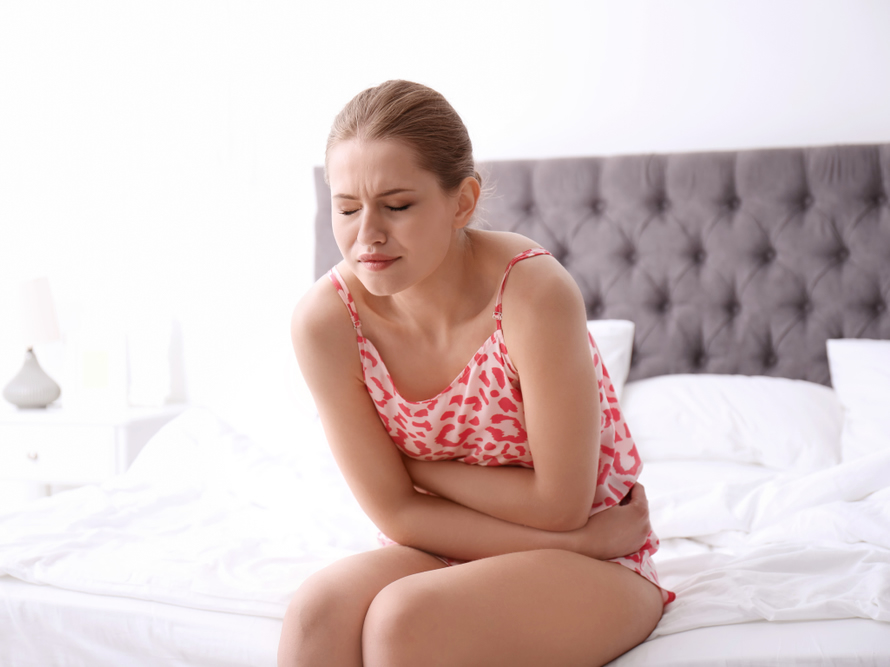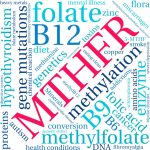
What is Endometriosis?
16 Jan 2019
What is MTHFR and how can it affect Fertility?
2 Aug 2019
Over the past few decades, scientists have been reporting on the worrisome increasing trend of human infertility rates.
What are Endocrine / Hormonal Disruptors?
After extensive research it was discovered that certain environmental chemical substances are to blame.
These chemicals are called ‘Endocrine Disruptors’ because they can disrupt normal hormonal balance resulting in many different types of hormonal, reproductive and fertility related diseases in men, women, children and particularly the growing foetus.
Endocrine disruptors are found everywhere in our environment – in the air we breathe, the water we drink and the food we eat. Their effects may also be epigenetic i.e. transgenerational causes of chronic diseases. Pre-conception, pregnancy, and early childhood are thought to be the most vulnerable periods of exposure.
Chemicals from industrial and agricultural waste products, pesticides, medications (including the contraceptive pill) and personal care goods will end up in our waterways or leach into the soil and accumulate in the environment, affecting all life on earth.
Even though we’re lead to believe our bodies can cope with low levels of exposure to some of these chemicals, it is important to be aware of what we can do to minimise our level of exposure on a daily basis.
Having your DNA/Genomic analysis done, can shed light on whether you have a predisposition to be affected by these chemicals.
Can smoking affect fertility?
Smoking (active and / or passive smoking) during pregnancy can affect the development of the foetus’ ovaries and testes.
Women who smoke or who are exposed to passive smoke are more likely to experience infertility, take longer to get pregnant, and have an increased risk of miscarriage.
It has been well documented that smoking affects each stage of the reproductive process – from egg and sperm DNA and maturation, to hormone production and the environment in the uterus.
Can endocrine disruptors cause fertility issues and miscarriage?
Chemicals found in plastics, processed foods and cleaning products, such as phthalates, dioxin and bisphenol A (BPA) have been linked with thyroid disorders, repeated miscarriage, endometriosis, PCOS, low ovarian reserve, low semen quality, birth defects and childhood learning disorders.
According to research on female fertility, women with higher blood levels of these so-called ‘forever chemicals’ have a 40% lower chance of becoming pregnant within a year of trying to conceive.
The latest Medscape research on pregnant women shows those women ‘exposed to higher levels of enodocrine-disrupting plasticisers (synthetic chemicals called phthalates used for softening plastics) experienced steep increases in blood pressure late in pregnancy and lasting up to 6 years postpartum’.
These synthetic chemicals are used in food production packaging eg. lining the inside of canned foods as well as cosmetics and other goods.
Where are endocrine disrupting chemicals found?
- Household and industrial cleaning products and laundry detergents.
- Office products including ink toners, solvents and cartridges and cash register receipts.
- Certain cooking and heating utensils especially plastic containers and non-stick cookware.
- Conventionally grown (i.e. not organic) produce. These contain pesticides, herbicides, glyphyosates (Roundup) and industrial runoff.
- Conventionally farmed animals and poultry fed on processed grains containing herbicides, fungicides, pesticides and antibiotics.
- Fresh, large, deep sea fish contaminated with mercury and other heavy metals, and farmed fish, fed on grains containing antibiotics, pesticides and dyes.
- Deli and processed meats, sausages.
- Certain cosmetics, fragrances and skin care products – especially those containing the chemical ‘paraben‘. This chemical helps to keep the product shelf-stable, so it acts as a preservative. But those products containing parabens are known to mimic hormones when they are absorbed in the body and eventually cause disruption with the endocrine system. So look at the ingredients of your body lotions, cleansers, makeup and all your cosmetics for names such as methylparaben, ethylparaben, butylparaben or polyparaben. And preferably change over to healthier options. There are plenty of options on the market these days, so it wouldn’t be as difficult as you might imagine.
- Industrial air pollutants, exhaust fumes and cigarette smoke, marijuana, recreational drugs.
- Furniture upholstery and foam mattresses treated with PFAS flame retardants.
Which chemicals should I avoid if I want to get pregnant?
- Bisphnenol A (BPA) and PCB – found in plastics and the lining of some canned foods.
- Phthalates – found in plastic food containers, children’s toys, plastic wrap, cosmetics and fragrances.
- Atrazine – found in herbicides used on conventional farms.
- Dioxin – used in processed foods.
- Perchlorate – found in drinking water.
- PFAS and PBDE – found in fire retardants.
- Heavy metals e.g. lead, arsenic, mercury – found in unfiltered water, old paint, certain seafood.
- PFC – found in non-stick pans, stain & water resistant coatings.
- Organophosphates – found in pesticides used for growing produce on conventional farms.
- Nitrites and sulphites – found in deli meats and sausages.
- Glycol ethers – found in cleaning products, solvents, brake fluid and some cosmetics.
Are some people more susceptible to the negative effects of environmental toxins?
Even though these chemicals affect us all in some way or another, some people are even more susceptible to their deleterious effects.
If I suspect that you might be one of those susceptible individuals, I will organise for you to have a DNA/Genomic test done. Once I’ve analysed this test, I will be able to work out and advise you on your own personalised programme to help you improve the way your genes (especially your detoxification genes) express themselves.
How you can minimise / avoid exposure to these chemicals/toxins:
- Eat local, seasonal, organic food wherever possible.
- Avoid farmed fish. Rather eat wild ocean fish.
- Avoid deli meats.
- Store food and drink in glass containers and bottles rather than plastic.
- NEVER heat/microwave food or drink in plastic, polystyrene containers or plastic wrap.
- Use glass baby bottles and avoid plastic drinking bottles where possible.
- Check out your kitchen and pantry – clear out anything with labels that have any chemicals.
- Replace non-stick pots and pans with ceramic or glass cookware.
- Drink filtered tap water – use a reverse osmosis filter.
- Use earth-friendly, animal-friendly, green, non-toxic or organic brands of personal care and cleaning products, carpeting, paint, baby items, upholstery.
Some examples include “Beauty Counter” and “Juice Beauty” cosmetics and body products; also “Sundays” nail polish. - Avoid artificial air fresheners, fabric softeners and synthetic fragrances.
- Replace your vinyl shower curtain with one made of fabric other than plastic.
- Certain indoor plants absorb indoor pollutants and harmful gases in the home and office e.g. Butterfly palm; Lady palm; Bamboo palm; Dwarf Date palm; Boston Fern; Rubber plant; Philodendron; Peace Lily.
- There is a list called ‘Dirty Dozen’ which outlines 12 fruits and vegetables containing the most pesticide residue. It’s advisable to only consume these if they are organic.
- Another list called ‘Clean Fifteen’ outlines 15 fruits and vegetables that have less pesticide residue – if you have a tight budget or can’t find the organic grown options. Nevertheless, it’s advisable to wash them in a four parts water to one part vinegar solution and rinse well before consuming.
NB. This information is not meant to make you feel anxious or nervous. It’s meant to make you aware and feel empowered by your knowledge, so you can make informed decisions going forward.
Remember the 80/20 rule – it’s what you do 80% of the time that matters.
It’s impossible to do everything 100% of the time and you should not even contemplate striving for such perfection – it will make you very stressed and anxious which is not good for your health or your fertility.
Joanne Lipinski – Fertility Naturopath Melbourne
Joanne is a certified FitGenes practitioner and uses only those accredited, secure TGA registered DNA testing companies that produce accurate testing panels with sound research and evidence-based ratings.

